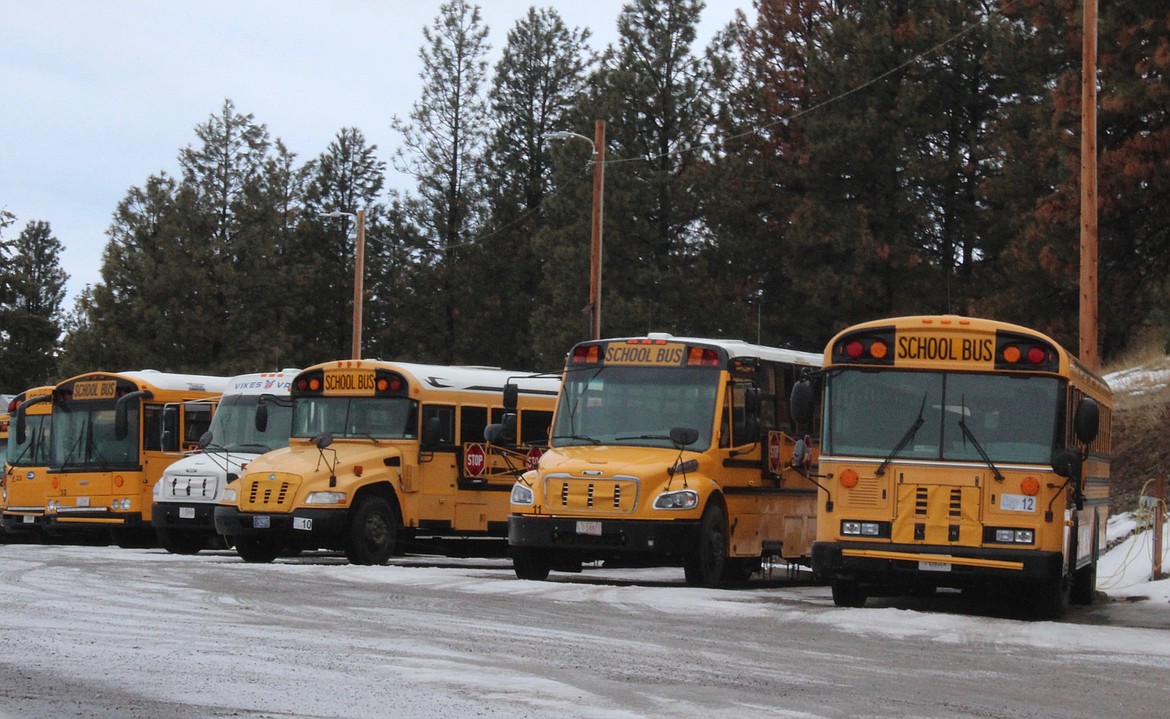Bigfork School Board authorizes purchase of electric bus
TAYLOR INMAN | Hagadone News Network | UPDATED 2 years, 11 months AGO
Taylor Inman covers Bigfork and the north shore for the Bigfork Eagle and hosts News Now and other podcasts for the Daily Inter Lake. Originally from Kentucky, Taylor started her career at the award-winning public radio newsroom at Murray State University. She worked as a general assignment reporter for WKMS, where her stories aired on National Public Radio, including the show “All Things Considered.” She can be reached at 406-758-4440 or at [email protected]. | January 19, 2023 11:00 PM
Bigfork Schools are taking advantage of a grant which aims to help districts move towards clean energy buses.
The Bigfork School Board on Jan. 11 unanimously approved the purchase of an electric bus. The district was awarded $375,000 for an electric bus in 2022 through the Environmental Protection Agency’s Clean School Bus Program.
Transportation Director Danny Walker said after researching a few different electric bus companies, he recommended purchasing a 71-passenger bus from Lion Electric. The cost of the bus matches the grant they received and the charging infrastructure would cost $20,370. Walker said the EPA program would cover $20,000 of the cost of the charging infrastructure, leaving the district with an out-of-pocket cost of $370.
Walker said a requirement to receive the grant is to take one of the diesel buses entirely off the road. The district selected a 2010 Bluebird bus with 105,000 miles on it to be removed from its fleet.
“It goes to Treasure State (metal recycling) where they cut the frame in half, show documentation that is disabled and they punch a hole in the block … Then it will probably go into the junkyard across the street from them for parts,” Walker said.
Walker estimates the district should be receiving the bus this summer. The bus is expected to include an extended stop arm, cameras, seat belts and Onspot chains.
Superintendent Tom Stack said Walker visited Havre School District, which recently purchased two of the same buses which ran well during December’s cold snap.
“They ran them when it was super cold for Christmas. It was minus 42 over there without a wind chill, they ran great — no issues,” Walker said.
Stack made this comparison to diesel buses, which can experience issues during frigid temperatures.
Board trustee Christina Relyea asked why he preferred Lion over International, another electric bus company with the same price point.
He said it came down to the build and the batteries — Lion started out producing electric buses, while International built diesel buses and is now converting them into electric.
For International, batteries are covered under an eight-year warranty but cost $100,000. Lion batteries cost $30,000.
ARTICLES BY TAYLOR INMAN

Blacktail Mountain Ski Area sets opening for Christmas Eve
Christmas Eve will mark the start of seven-day-a-week operations, which will continue through Jan. 4, according to a release from the ski area.

Christmas magic: Lakeside resident spreads cheer with elf character
Silver Belle is always excited to meet new people and help them get up to the North Pole to meet Santa Claus during the Journey to the North Pole cruises, which take place every holiday season on Lake Coeur d'Alene.

Christmas magic: Lakeside resident spreads cheer with elf character
Silver Belle is always excited to meet new people and help them get up to the North Pole to meet Santa Claus during the Journey to the North Pole cruises, which take place every holiday season on Lake Coeur d'Alene.

